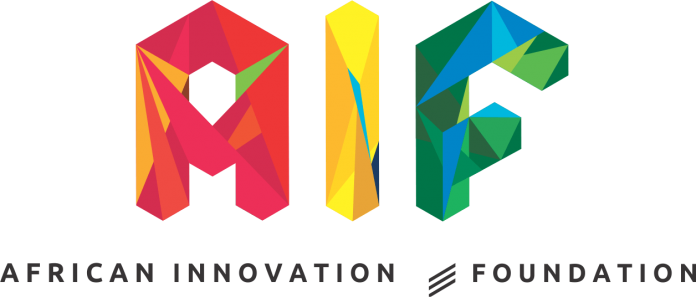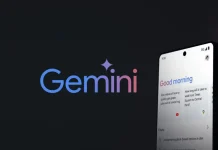IPA 2018 keenly contested with 3 000+ applicants from over 52 countries; This year’s innovations address critical challenges in ICT, agri-business, public health and the environment/ energy sectors; The top 10 nominees reflect Pan African flavour of IPA with representation from north, west, east, central and southern Africa, including Madagascar.
The African Innovation Foundation recently announced its top 10 nominees for its prestigious Innovation Prize for Africa (IPA) 2018 awards. This year’s Call for Applications with its theme “African innovation: Investing in Inclusive Innovation Ecosystems” attracted more than 3 000 applications from 52 African countries. Building on the AIF mandate, submissions this year demonstrate significant breakthroughs in ICT, agri-business, public health and the environment/ energy sectors to improve the lives and economic prospects of Africans.
Says Walter Fust, AIF Chairman: “Now in its seventh year running, we have witnessed multi-million-dollar businesses emerging from the IPA initiative, with health, environment/energy and agricultural innovations leaving imprints across the African continent and beyond. Our theme this year prompts the need for increased collaboration between government, business, industry, innovation enablers and the community to further realise African prosperity and economic freedom.”
The IPA initiative has grown from strength to strength mobilizing, rewarding and honouring top African innovators whilst also building strategic partnerships with innovation enablers to strengthen innovation ecosystems in Africa. To date, AIF has supported 55 IPA winners/nominees with US$ 1 million+ and mobilized 9 400+ innovators from all 55 African countries. AIF endorsement and exposure generated through IPA have seen past winners securing over US$135 million worth of investments to grow and scale their businesses. IPA past winners and nominee company valuations amount to US$200 million+.
Managing Director of AIF, Pauline Mujawamariya Koelbl who has steered the IPA program since its establishment in 2011, said: “We are proud of the impressive innovations that made it to the top 10 this year. They are evident examples of African ingenuity and each innovation is solving a real challenge in a key sector. Africa, and indeed the rest of the world, must keep an eye out – these innovations are ready to propel our continent’s global competitiveness in the market! Furthermore, these top 10 nominees are a great reminder that if given access to capital, Africans are capable of solving African challenges whilst also contributing to the rest of the world.”
Meet the top 10 IPA nominees whose innovations are in the sectors of agri-business, public health and well-being, ICT, energy, environment and water as follows:
Biodegradable seed tray for rice farming (Madagascar) – Juslain Nomenjanahary Raharinaivo: Rice is a staple food in many African countries, constituting a major part of the diet. With an ongoing demand for increased rice production, some African countries are not self-sufficient. In Madagascar, seeds are therefore sowed in innovative pots made of paper, called BG or biodegradable germination. Growers transplant seedlings into easy-to-transplant clumps with a very high tilling capacity which also increases rice yields and allow possibilities to expand the area under cultivation.
Buried Diffuser (Tunisia) – Mr. Wassim Chahbani: Irrigated systems play a major role in sustaining livelihoods in Africa and the world over. Water in agricultural use is critical for crop yields, and reducing consumption is necessary to increase the amount of available water for other uses. The Buried Diffuser saves irrigation water, energy, and use of fertilizers, reducing zero water waste through evaporation. Water is injected directly to the roots, radically reducing water consumption levels used for irrigation.
Efficient detection of TB and Hepatitis C (Morocco) – Professor Abdeladim Moumen and Dr. Hassan Ait Benhassou: Hepatitis C and Tuberculosis (TB) are critical health burdens in Africa. Besides lack of available treatment, access to accurate and cost-effective diagnostic tests remains a challenge across the continent. This innovation comprises two molecular tests for the rapid, accurate and effective detection and load quantification of both diseases. The technology allows specific detection of the hepatitis C or TB genome in blood or sputum samples; tests are clinically validated, simple, accurate and low cost.
eNose sensor for tea processing (Uganda) – Abraham Natukunda: This innovation applies an “eNose” and analytics platform to supplement current tea processing procedures using low power sensor devices to determine optimum levels of tea fermentation. An analytics platform receives and analyses the sensor data, providing real-time monitoring of key reactive elements and compounds during the tea-processing period, ensuring efficient traceability, prediction, and motion. This innovation will lead to improved control results in better tea quality, boosting marketability and increased revenue for tea processors from each bushel of tea harvested.
Incas Vaginal Discharge Kit (Ghana) – Dr. Laud Anthony Basing: Incas Vagkit is a 3-in-1 urine-based test kit that examines vaginal infections. Linked to a mobile application, it offers a convenient and fast solution for women experiencing vaginal infections. The Vagkit simply requires a urine sample and can be used at home; results are available within 10 minutes. This innovation drastically reduces testing time for vaginal infections in Africa, leading to the efficient and quick detection and management of vaginitis.
“iThrone” portable toilet (Egypt) – Dr. Diana Yousef: “We shrink it” is a revolutionary approach to removing un-piped sewage. This technology innovation is a disruptive yet low-cost composite polymer membrane that essentially “shrink-wraps crap” aggressively evaporating or “flushing” away from the full water content of daily sewage output without the need for added heat, energy or flush water. This innovation responds to the problem of poor sanitation and health conditions, as well as pollution caused by sewerage. iThrone cuts off a significant amount of methane emissions that are generated by unmanaged/uncollected sewage.
Mobile Shiriki Network (Rwanda) – Henri Nyakarundi: The Shiriki Hub is a Smart Solar Kiosk, powered by strong solar panels and equipped with large capacity batteries, Internet of things (IoT) sensors, and a custom designed router, offering device charging, virtual top-ups, and low-cost connectivity. Designed as a business-in-a-box and distributed on a micro-franchise basis, this is an ideal solution for digital connectivity to rural populations and temporal settlements such as refugee camps.
Natural solutions for skeletal regeneration and repair (South Africa) – Prof. Keolebogile Shirley Motaung: A multi-method approach using natural products for skeletal regeneration and repair. La-Africa Soother (LAS) is a topical paste ointment for sportspeople as a natural anti-inflammatory cream to treat pain and inflammation. The second product which is Plant-Based Morphogenetic Factor Implant (PBMF) induces bone and cartilage formation. Treatment of fractures has been a continuous challenge for orthopaedic surgeons. The latter product differs from knee replacement, autografts and allografts, offering quick results with no waiting period and no harvesting of tissue, with relief and safety for patients.
Reducing pollution in an eco-friendly way using GKSORB! (Benin) – Dr Fohla Mouftaou: Water hyacinth is an environmental threat in many African countries, invading lakes, rivers, and agricultural fields. The threat affects agriculture, the fishing industry, health and livelihoods. GKSORB is 100% organic and biodegradable fibre with the potential to absorb up to 17 times its weight. Made from water hyacinth, it can be used as a separator for hydrocarbons or as a cleaning agent for surfaces contaminated by various pollutants such as hydrocarbons, acids and paints.
Waxy II Technology (Tanzania) – Christian Mwijage: His company recycles and transforms post-consumer waste plastic into durable and environmentally friendly plastic lumber using a chemical-free and energy conserving technology called “Waxy ӀӀ technology” for building, construction and furniture production. Every year, more than nine million tonnes of plastic garbage ends up in the ocean causing a major threat to marine life and people. Plastic timber is an affordable alternative to wood timber and reduces the need for building material manufactured from wood, preserving forests, cutting down on deforestation and mitigating the effects of climate change.








